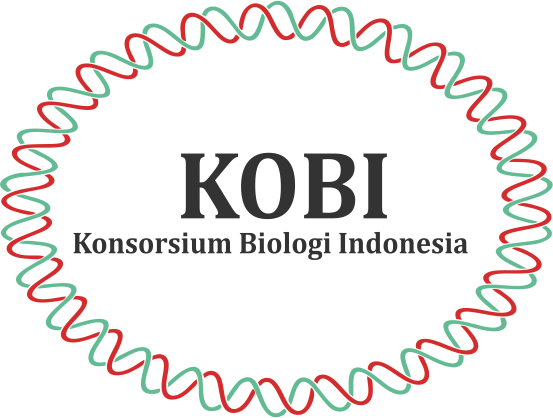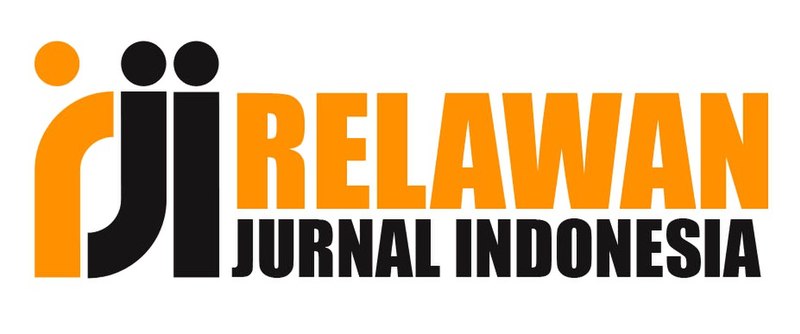PERAN NUTRISI DALAM MODULASI GEN INFLAMASI PADA KERUSAKAN MUKOSA LAMBUNG AKIBAT NSAID: SEBUAH PENDEKATAN NUTRIGENOMIK
DOI:
https://doi.org/10.30872/qtab7a55Keywords:
Ekspresi gen, mukosa lambung, NSAID, nutrigenomik, nutrisiAbstract
Obat antiinflamasi nonsteroid (NSAID) merupakan terapi yang umum digunakan, khususnya pada kelompok lansia, namun penggunaannya dapat menyebabkan gangguan mukosa lambung yang dipicu oleh penghambatan enzim COX-1 dan peningkatan stres oksidatif. Artikel yang dianalisis merupakan penelitian primer dari tahun 2014 hingga 2024 dengan desain in vivo, in vitro, atau observasional yang relevan dengan topik yang dikaji berdasarkan hasil utama, ekspresi gen terkait, dan mekanisme molekuler. Hasil sintesis dari sembilan studi utama menunjukkan bahwa senyawa seperti omega-3 (EPA dan DHA), astaxanthin, polifenol, dan komponen aktif dari walnut dan Gardenia jasminoides mampu memberikan perlindungan mukosa melalui aktivasi jalur molekuler Nrf2/HO-1 dan AMPK/SIRT1, serta menekan jalur inflamasi NF-κB dan COX-2. Namun, konsumsi lemak jenuh tinggi dapat memperparah kondisi mukosa dengan meningkatkan IL-17A dan menurunkan gen pelindung seperti TLR4, Ocln, dan Nr1h4. Hasil studi ini menunjukkan bahwa pola makan dan komponen nutrisi tertentu mampu memengaruhi ekspresi gen dan jalur molekuler yang berperan dalam menjaga kesehatan mukosa lambung. Temuan ini mendukung potensi pendekatan nutrigenomik sebagai strategi preventif dan pendukung terapi yang lebih aman untuk mengurangi risiko gangguan saluran cerna akibat penggunaan NSAID dalam jangka panjang.
References
Cundra, L. B., Vallabhaneni, M., Houston, K., Saadeh, M., Vargas, A., D’Souza, S. M., & Johnson, D. A. (2024). Nutritional Effects on Mucosal Integrity and Immune Function. Exploration of Immunology, 90–105. https://doi.org/10.37349/ei.2024.00130
Han, Y.-M., Park, J.-M., Kang, J. X., Cha, J.-Y., Lee, H.-J., Jeong, M., Go, E.-J., & Hahm, K. B. (2016). Mitigation of Indomethacin-Induced Gastrointestinal Damages in Fat-1 Transgenic Mice Via Gate-Keeper Action of Ω-3-Polyunsaturated Fatty Acids. Scientific Reports, 6(1), 33992. https://doi.org/10.1038/srep33992
Hatton‐Jones, K. M., du Toit, E. F., & Cox, A. J. (2022). Effect of Chronic Restraint Stress and Western‐Diet Feeding on Colonic Regulatory Gene Expression in Mice. Neurogastroenterology & Motility, 34(4). https://doi.org/10.1111/nmo.14300
Islam, H., Siddiqui, A., Islam, R., Islam, T., Ahmed, S., Fahim, M., Khalid, M., Malik, G. M. A., & Imtiaz, H. (2024). NSAID-Induced Gastric Ulcer Disease: A Deleterious Connection. Discovery Medicine, 36(188), 1789. https://doi.org/10.24976/Discov.Med.202436188.165
Liu, R., Zhu, N., Hao, Y., Liu, X., Kang, J., Mao, R., Yu, X., & Li, Y. (2023). The Protective Effect of Walnut Oligopeptides Against Indomethacin-Induced Gastric Ulcer in Rats. Nutrients, 15(7), 1675. https://doi.org/10.3390/nu15071675
McEvoy, L., Carr, D. F., & Pirmohamed, M. (2021). Pharmacogenomics of NSAID-Induced Upper Gastrointestinal Toxicity. Frontiers in Pharmacology, 12. https://doi.org/10.3389/fphar.2021.684162
Parham, N., Rahimi, K., Ghotbeddin, Z., & Tabandeh, M. R. (2024). Fish Oil Ameliorates Ethanol-Induced Gastric Injury in Rat by Modulating Gene Related to Apoptosis. Scientific Reports, 14(1), 6193. https://doi.org/10.1038/s41598-024-56647-5
Park, J. M., & Hahm, K. B. (2024). Dietary Walnuts Prevented Indomethacin-Induced Gastric Damage via AP-1 Transcribed 15-PGDH, Nrf2-Mediated HO-1, and n-3 PUFA-Derived Resolvin E1. International Journal of Molecular Sciences, 25(13), 7239. https://doi.org/10.3390/ijms25137239
Rahmah, C. (2021). Pengaruh Pemberian Madu terhadap Perbaikan Kerusakan Mukosa Gaster dan Penyembuhan Luka pada Penderita Ulkus Peptikum. SCRIPTA SCORE Scientific Medical Journal, 3(1), 61–67. https://doi.org/10.32734/scripta.v3i1.4531
Ruiz-Hurtado, P. A., Garduño-Siciliano, L., Domínguez-Verano, P., Balderas-Cordero, D., Gorgua-Jiménez, G., Canales-Álvarez, O., Canales-Martínez, M. M., & Rodríguez-Monroy, M. A. (2021). Propolis and Its Gastroprotective Effects on NSAID-Induced Gastric Ulcer Disease: A Systematic Review. Nutrients, 13(9), 3169. https://doi.org/10.3390/nu13093169
Saha, S., Buttari, B., Panieri, E., Profumo, E., & Saso, L. (2020). An Overview of Nrf2 Signaling Pathway and Its Role in Inflammation. Molecules, 25(22), 5474. https://doi.org/10.3390/molecules25225474
Sarıyer, E. T., Baş, M., Çolak, H., Özkan Yenal, N., Unay Demirel, Ö., & Yüksel, M. (2024). Comparison of Dietary Supplementation with Krill oil, Fish Oil, and Astaxanthin on an Experimental Ethanol-Induced Gastric Ulcer Model: A Biochemical and Histological Study. Nutrients, 16(20), 3426. https://doi.org/10.3390/nu16203426
Sugimura, N., Otani, K., Watanabe, T., Nakatsu, G., Shimada, S., Fujimoto, K., Nadatani, Y., Hosomi, S., Tanaka, F., Kamata, N., Taira, K., Nagami, Y., Tanigawa, T., Uematsu, S., & Fujiwara, Y. (2019). High-Fat Diet-Mediated Dysbiosis Exacerbates NSAID-Induced Small Intestinal Damage Through The Induction of Interleukin-17A. Scientific Reports, 9(1), 16796. https://doi.org/10.1038/s41598-019-52980-2
Tai, F. W. D., & McAlindon, M. E. (2021). Non-Steroidal Anti-Inflammatory Drugs and the Gastrointestinal Tract. Clinical Medicine, 21(2), 131–134. https://doi.org/10.7861/clinmed.2021-0039
Ueda, T. (2015). Beneficial Effect of An Omega-6 PUFA-Rich Diet in Non-Steroidal Anti-Inflammatory Drug-Induced Mucosal Damage in The Murine Small Intestine. World Journal of Gastroenterology, 21(1), 177. https://doi.org/10.3748/wjg.v21.i1.177
Worapongpaiboon, R., Kaikaew, K., Werawatganone, P., Somanawat, K., Lerttanatum, N., Klaikeaw, N., & Werawatganon, D. (2024). Gardenia jasminoides Fruit Extract Alleviates Non-Steroidal Anti-Inflammatory Drug–Induced Gastropathy in Rats. BMC Complementary Medicine and Therapies, 24(1), 401. https://doi.org/10.1186/s12906-024-04702-z
Xie, X., Ren, K., Zhou, Z., Dang, C., & Zhang, H. (2022). The global, Regional and National Burden of Peptic Ulcer Disease From 1990 to 2019: A Population-Based Study. BMC Gastroenterology, 22(1), 58. https://doi.org/10.1186/s12876-022-02130-2
Yoshimi, T., Yamagishi, Y., Kanegawa, I., Suda, M., Saiki, R., Tanaka, K., Goda, H., Kudo, T., & Ito, K. (2019). Study of The Inhibitory Effects of Enteral Nutrition Formula on Indomethacin-Induced Gastric Lesions in Mice. Nutrients, 11(12), 3058. https://doi.org/10.3390/nu11123058
Yuan, L., Wang, Y., Li, N., Yang, X., Sun, X., Tian, H., & Zhang, Y. (2024). Mechanism of Action and Therapeutic Implications of Nrf2/HO-1 in Inflammatory Bowel Disease. Antioxidants, 13(8), 1012. https://doi.org/10.3390/antiox13081012
Zhang, D., Liu, S., Li, Z., & Wang, R. (2022). Global, Regional and National Burden of Gastroesophageal Reflux Disease, 1990–2019: update from the GBD 2019 study. Annals of Medicine, 54(1), 1372–1384. https://doi.org/10.1080/07853890.2022.2074535
Zong, C., Yang, M., Guo, X., & Ji, W. (2022). Chronic Restraint Stress Promotes Gastric Epithelial Malignant Transformation by Activating The Akt/p53 Signaling Pathway Via ADRB2. Oncology Letters, 24(3), 300. https://doi.org/10.3892/ol.2022.13420





